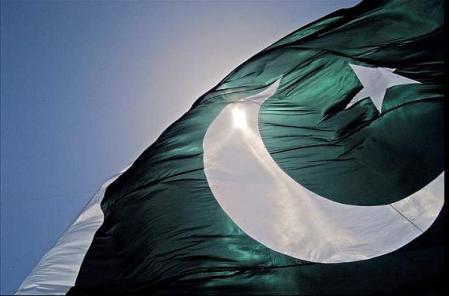 Rebuffed by the Obama administration on its effort to seek US intervention on Kashmir, Pakistan has said that it has never made such a "demand" and just presented its wish list to Americans on the issue.
Rebuffed by the Obama administration on its effort to seek US intervention on Kashmir, Pakistan has said that it has never made such a "demand" and just presented its wish list to Americans on the issue.
"He (Prime Minister Nawaz Sharif) said international community should note that (India-Pakistan) bilateral talks (on Kashmir) have not worked. We wish to have third party mediation, but we have not demanded it from the United States," Pakistan's outgoing National Security Advisor Sartaj Aziz said.
In a press interaction with Pakistani media, Aziz was responding to questions on the statement made by the US in which it ruled out any meditation effort unless both India and Pakistan ask for it.
Aziz refuted reports that Pakistan has "sought mediation" from the US on resolving disputes between India and Pakistan.
"Under Shimla Accord it was decided that India and Pakistan would resolve their disputes bilaterally. Such a bilateral talks has not yielded any results for the last 40 years. So then what is the solution?" he asked.
"Sharif in his address to the United Nations General Assembly said that since the bilateral process is not working, the international community should take note of the increasing tension between the two countries and increased firing on the Line of Control.
"It is not only an issue of Kashmir, it is also a threat to regional security," Aziz said.
However, he acknowledged that there is unlikely to be a third party meditation on Kashmir.
"There could be international pressure," he added.
Aziz claimed that Sharif never asked for an American meditation.
"But our concerns have been addressed by the US in the joint statement that Kashmir dispute needs to be addressed," he claimed.
Aziz said the mention of Kashmir and its resolution in the joint statement is a very significant development.
"The joint statement describes Kashmir as a dispute, not an issue. This is significant because US in this statement has agreed that Kashmir is a dispute, previously it was an issue. This is an important signal to India," he said in response to a question.
'Whatever India does, we respond accordingly'
Responding to a question on Sharif's remarks that Pakistan will be compelled to take several counter measures to "preserve credible" deterrence against India's major military buildup and dangerous military doctrines, Aziz said that minimum nuclear deterrence is dynamic and not static.
Pakistan, he asserted, would continue changing its nuclear deterrence capabilities as India increases its conventional weapons capacity.
Pakistan's nuclear programme is basically to address the defence imbalance with India, he said.
"Nuclear is our strategic stability. We keep on sharing with our international partners including the US what is our minimum nuclear deterrence. This is a dynamic concept. It is not static. If our adversary takes some action or if there is some development, we have to adjust our (nuclear) programme accordingly," he said.
Aziz said with increase in India's conventional capabilities, Pakistan’s nuclear deterrence would keep on increasing.
"Whatever India does, we respond accordingly every two-three years," he said in response to the question. Both India and Pakistan want to be a member of the Nuclear Suppliers Group, he said.
"We are improving the safety and security of our system. Whenever it happens, both India and Pakistan would become its (NSG) member together. It is not going to happen that India will become a member (of NSG) and we will not become a member," Aziz claimed.
Dossiers on Indian activities
Aziz said that the three dossiers submitted by him to Secretary of State John Kerry give details and proof of Indian State actors, in particular RAW's alleged role in subversive activities in Baluchistan, the Federally=Administered Tribal Areas and Karachi.
The charges have been summarily dismissed by India.
"By giving these documents first to the United Nations and now to the United States we are sensitising the international community of the role being played by Indian agencies inside Pakistan," Aziz said.
He hoped that the international community would look into the Pakistani allegations against India and take a serious note of it.
According to a senior Obama Administration official, Secretary Kerry received set of dossiers from Pakistan on alleged Indian activities in parts of Pakistan.
On Afghanistan, Aziz alleged that those who were against this peace process leaked the news about the death of Mullah Omar.
Thus they succeeded in sabotaging the talks.
"Both the United State and China are interested in pushing the peace process forward. So in the coming days it is possible to revive the peace process," he said.
Aziz said the Pakistan Army chief is visiting the US next month to fast track defence co-operation and purchase of various military hardware from the United States including F-16s and helicopters.
There are a few additional items also, he said.